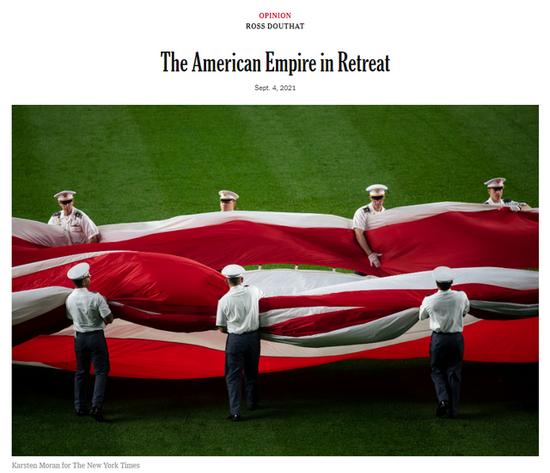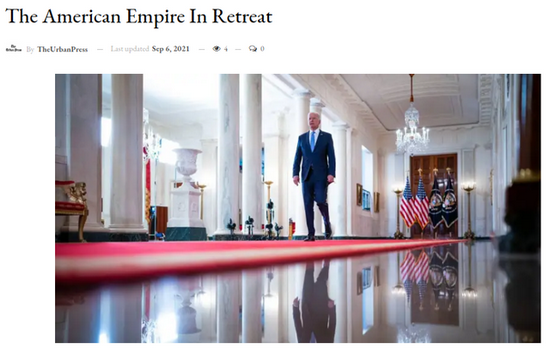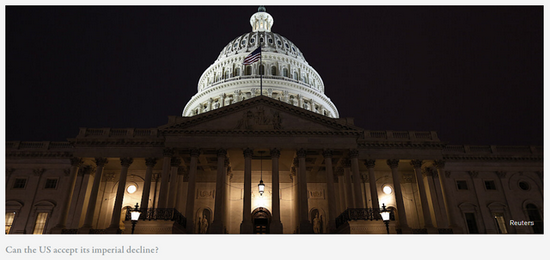续批美英澳 法外长认为已现严重危机
文 / 黄秀嫱
9/18/2021
(早报讯)法国因不满澳洲突然取消潜艇订单合约,周五(17日)召回驻美国和驻澳大利亚大使。法国外长勒德里昂翌日受访时,继续就风波批评澳洲及美国,他以谎言、口是心非、鄙视及失信来形容事件,指西方盟友之间已出现严重危机。
澳洲5年前与法国签署总值至少660亿美元(约890亿新元)的常规潜艇合约,但澳洲日前与美国及英国宣布建立新的印太安全伙伴关系后取消合约,转而在美国协助下建造核动力潜艇。勒德里昂否认法国事前曾被谘询,指盟友不会以这种残酷及不可预测的态度,对待法国这个主要伙伴。
英国属“AUKUS”三国同盟的其中一员,但法国没有同时传召驻英国大使。勒德里昂就此解释时,批评英国是永远的机会主义者,因此没有必要传召大使说明情况,又指北约研究未来战略时需要考虑今次事件。
对美澳潜艇交易不知情大感愤怒 法国召回驻美澳大使史无前例
来自 / 联合早报 | 文 / 蔡添成
9/18/2021

法国外长勒德里昂发表声明说:“此事的后果是,法国对所谓的盟友、伙伴关系和印太对欧洲的重要性的理解因此受到影响,这一事件严重性非比寻常。”
(华盛顿综合电)美国要提供核动力潜艇给澳大利亚,触怒了与澳洲有潜艇合同的法国,引发轩然大波,法国前所未有地召回驻美国和澳洲的大使。据《纽约时报》,美澳在商讨核动力潜艇交易时全程隐瞒法国,以致交易公开后法国大发雷霆。
法国总统马克龙周五(9月17日)下令召回大使,外长勒德里昂发表声明说,美国和澳洲9月15日宣布达成向澳洲提供核潜艇的协议,导致法澳签署的潜艇合同告吹,这一事件“严重性非比寻常”。
勒德里昂说,这是“盟友和伙伴之间不可接受的行为”,因此法国决定立即召回驻美澳的大使。他说:“此事的后果是,我们对所谓的盟友、伙伴关系和印太对欧洲的重要性的理解因此受到影响。”
勒德里昂在三天前甚至称法国被盟友“在背后捅了刀”。
美国总统拜登周三宣布美英澳缔结新的防卫联盟,美国将提供核动力潜艇技术给澳洲,以及在网络防卫、人工智能和海底能力方面分享技术。此联盟普遍被视为意在对抗中国日益强大的军力。可是,法国却因此丧失价值500亿澳元(约490亿新元)的潜艇合同。
法国外交部谴责美澳,对英国则只字不提。不过,外交界消息说,法国也不满英国在这个问题上投机取巧。
国与国之间交恶,召回大使是最后的外交手段,而这样的事发生在盟友之间更非比寻常。
白宫对法国的决定表示遗憾,美国国务院则表明“高度重视”法国这个重要盟友,并要设法修补关系。
在华盛顿访问的澳洲外长佩恩说:“澳洲理解法国对我们的决定感到很失望,但此决定是基于我们对国家安全利益的考量。”
据《纽约时报》,美英澳多个月前就开始商讨新联盟包括核潜艇交易,却一直把法国蒙在鼓里。
报道引述美国和英国的匿名官员称,澳洲在拜登上台后不久就找上门,对美英设计的核动力潜艇表示兴趣。澳方担心,法国的传统动力潜舰大约15年后交付时恐怕已落伍。澳方认为美英潜艇的隐秘性更高,可以在南中国海巡逻而较不易被中国侦测到。
官员透露,澳方知道美国有相同看法,因为拜登曾与助手们提到,法国的潜艇没能力跨越太平洋,隐蔽技术不足,无法出其不意地在中国岸外出现。
分析:拜登上台八个月 外交上连连“失误”
法澳早在2016年便签署潜艇合同,澳洲未曾表示有意取消。美国也一直没有向法国打招呼,直到周三正式宣布美英澳安全联盟之前几小时,拜登的高级助手才知会法国。美澳官员显然担心,如果让法国事先知情,恐怕会搅局。
彭博社分析指出,拜登政府上台八个月来在外交上连连“失误”,除了此次潜艇事件,从阿富汗撤军、拒绝解除对欧旅游限制等都激怒盟友,连支持者都抨击。
学者指出,美国只顾自身利益,只会让盟友反感。布鲁金斯研究所美欧研究中心的访问学者贝林说:“尽管美国对盟友说了不少好话,但预料美国会在符合本国利益的情况下,单方面采取更多行动。我认为,欧洲会觉得美国不照顾他们的利益。”
美媒文章:阿富汗布局失败、中俄崛起,“美利坚帝国”已衰落
环球网
9/09/2021
9月6日,《纽约时报》发表专栏作家罗斯·杜塔(Ross Douthat)的文章,他在文中表示,美国在伊拉克的困局和阿富汗的失败,以及俄罗斯的复仇主义和日益增长的中国力量,都削弱了“美利坚帝国”的发展,美国在“9·11”事件后谋求真正统治全球的幻想已经破灭。

杜塔认为,世界上存在“三个美利坚帝国,而不是一个”。他解释称:“首先是中央帝国,即美国大陆以及周边太平洋和加勒比地区的属地;然后是外展帝国,由美国人在二战后占领和重建并置于我们的军事保护伞下的地区组成:基本上是西欧和环太平洋地区;最后,还有美国的世界帝国,在精神上,它存在于美国的商业和文化力量所及之处,在现实中,它存在于美国的附庸国和军事设施的组合中。”
杜塔宣称,“在某种程度上,第三个帝国是我们(美国)最了不起的成就”,但它面积太大,因此很难整合,也很难施加直接的控制。

杜塔写道,“帝国时代最明显的美国失败”从1960年代的东南亚开始,然后是9·11之后的中东和中亚。他认为,这些失败“都是源于我们的傲慢想法,我们认为能把世界帝国作为外展帝国的一个简单的延伸,普遍使用北约那样的协定,并将二战后日本和德国的模式应用于越南、伊拉克或阿富汗。”
杜塔特别指出:“在我们最近将潜在竞争对手美国化的努力中,我们经历了类似的失败,虽然没有那么多流血事件,但战略后果更为严重。”他表示,美国曾在1990年代设想把自己与俄罗斯的关系发展成为类似与德国或日本的那种关系,而俄罗斯出现了“普京主义”;美国在过去20年里对中国施加影响,而中国坚持独立发展,成为了“一个真正的对手”。

杜塔在文中称,虽然美利坚“世界帝国”的失败不会动摇美利坚“中央帝国”,但会带来一定影响。虽然美国不会被塔利班推翻,但在美利坚“外展帝国”,在西欧和东亚,美国给人留下的虚弱形象会加速事态发展,真正威胁到“美国体系”。而在美利坚“中央帝国”,加速衰落的感觉将渗透到国内的所有争论中,扩大已经存在的意识形态分歧,鼓励分裂和导致迫在眉睫的内战。
作者最后写道,读者可能认为不如干脆摆脱掉什么“美利坚帝国”,但是让美国变回一个普通国家,“很难不经历一次痛苦的坠落”。
Ross Douthat: The American empire in retreat
By ROSS DOUTHAT
9/09/2021

In one of the more arresting videos that circulated after the fall of Kabul, a journalist follows a collection of Taliban fighters into a hangar containing abandoned, disabled U.S. helicopters. Except that the fighters don’t look like our idea of the Taliban: In their gear and guns and helmets (presumably pilfered), they look exactly like the American soldiers their long insurgency defeated.
As someone swiftly pointed out on Twitter, the hangar scene had a strong end-of-the-Roman Empire vibe, with the Taliban fighters standing for the Visigoths or Vandals who adopted bits and pieces of Roman culture even as they overthrew the empire. For a moment, it offered a glimpse of what a world after the American imperium might look like: Not the disappearance of all our pomps and works, any more than Roman culture suddenly disappeared in 476 A.D., but a world of people confusedly playacting American-ness in the ruins of our major exports, the military base and the shopping mall.
But the glimpse provided in the video isn’t necessarily a foretaste of true imperial collapse. In other ways, our failure in Afghanistan more closely resembles Roman failures that took place far from Rome itself — the defeats that Roman generals suffered in the Mesopotamian deserts or the German forests, when the empire’s reach outstripped its grasp.
Or at least that’s how I suspect it will be seen in the cold light of hindsight, when some future Edward Gibbon sets out to tell the story of the American imperium in full.
That cold-eyed view, taken from somewhere centuries hence, might describe three American empires, not just one. First there is the inner empire, the continental USA with its Pacific and Caribbean satellites.
Then there is the outer empire, consisting of the regions that Americans occupied and rebuilt after World War II and placed under our military umbrella: basically, Western Europe and the Pacific Rim.
Finally, there is the American world empire, which exists spiritually wherever our commercial and cultural power reaches, and more practically in our patchwork of client states and military installations. In a way, this third empire is our most remarkable achievement. But its vastness inevitably resists a fuller integration, a more direct kind of American control.
Seen from this perspective, the clearest American defeats of our imperial era, first in Southeast Asia in the 1960s and then in the Middle East and Central Asia after 9/11, have followed from the hubristic idea that we could make the world empire a simple extension of the outer empire, making NATO-style arrangements universal and applying the model of post-World War II Japan and Germany to South Vietnam or Iraq or the Hindu Kush.
We have experienced similar failures, with less bloodshed but more significant strategic consequences, in our recent efforts to Americanize potential rivals.
Our disastrous development efforts in Russia in the 1990s led to a Putinist reaction, not the German- or Japanese-style relationship we had imagined. The unwise “Chimerican” special relationship of the past two decades seems to have only smoothed China’s path to becoming a true rival, not a junior partner in a peaceful world order.
Both kinds of failures and their consequences — Russian revanchism and growing Chinese power combined with quagmire in Iraq and defeat in Afghanistan — have meaningfully weakened the American world empire, and extinguished our post-9/11 fantasy of truly dominating the globe.
But so long as we have the other two empires to fall back on, from our cold-eyed Gibbonian perspective the situation still looks more like a scenario where Rome lost frontier wars to Parthia and Germanic tribes simultaneously — a bad but recoverable situation — than like outright imperial collapse.
That said, defeats on distant frontiers can also have consequences closer to the imperial core. The American imperium can’t be toppled by the Taliban. But in our outer empire, in Western Europe and East Asia, perceived U.S. weakness could accelerate developments that genuinely do threaten the American system as it has existed since 1945 — from German-Russian entente to Japanese rearmament to a Chinese invasion of Taiwan.
Inevitably those developments would affect the inner empire, too, where a sense of accelerating imperial decline would bleed into all our domestic arguments, widen our already yawning ideological divides, encourage the feeling of crackup and looming civil war.
Which is why you can think, as I do, that it’s a good thing that we finally ended our futile engagement in Afghanistan and still fear some of the possible consequences of the weakness and incompetence exposed in that retreat.
And applied to the American empire as a whole, this fear points to a hard truth: You might think that our country would be better off without an imperium entirely, but there are very few paths back from empire, back to just being an ordinary nation, that don’t involve a truly wrenching fall.
Ross Douthat is a columnist for The New York Times.




